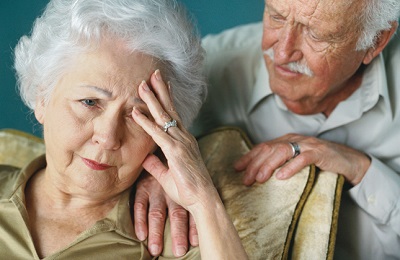With England in a second national lockdown and other parts of the UK under similar coronavirus restrictions, the Government has updated its guidance on safeguarding your mental health during the pandemic.
You can read the full guidance by clicking here (or a simplified ‘easy-read version here), but summarised below are some of the key things which can benefit your mental health and wellbeing:
 Think about your new daily routine. Consider how you can adapt and create positive new routines, engaging in useful, practical or meaningful activities. You might find it helpful to write a plan for your day or week.
Think about your new daily routine. Consider how you can adapt and create positive new routines, engaging in useful, practical or meaningful activities. You might find it helpful to write a plan for your day or week.
Consider how to connect with others. If you can’t meet in person, think about how you can stay in touch with friends and family via telephone, video calls or social media instead. The NHS Volunteers Service can also provide a telephone ‘check in and chat’ for if you have mental health issues and are feeling isolated. Call 0808 196 3646 (8am to 8pm) or visit the website.
Help and support others. Think about how you could help those around you – it could make a big difference to them and can make you feel better too. Remember it’s important to do this in line with guidance on COVID-19 to keep yourself and everyone safe.
Talk about your worries. This is a difficult time for everyone and sharing with family and friends how you’re feeling and the things you’re doing to cope can help them too. If you don’t feel able to do that, there are people you can speak to via NHS recommended helplines.
Look after your physical wellbeing. Your physical health has a big impact on how you’re feeling emotionally and mentally. Try to eat healthy, well-balanced meals and drink enough water. Where possible, exercise at home and/or outside as often as you wish, but know your limits and don’t do anything that could put you at risk. If you can go outside, there are lots of easy ways to get moving, such as walking or gardening.
Look after your sleep. Good-quality sleep makes a big difference to how you feel mentally and physically, so it’s important to get enough. Try to maintain regular sleeping patterns and keep good sleep hygiene practices, including avoiding screens before bed, cutting back on caffeine and creating a restful environment. The Every Mind Matters sleep page provides practical advice on how to improve your sleep.
Try to manage difficult feelings. If it makes you overly anxious or depressed, try to limit the time you spend watching, reading, or listening to media coverage of the outbreak. It may help to only check the news at set times or limiting yourself to checking a couple of times a day. The Every Mind Matters page on anxiety and NHS mental wellbeing audio guides provide further information on how to manage anxiety.
Get the facts. Gather high-quality information that will help you to accurately determine your own or other people’s risk of contracting COVID-19 so you can take reasonable precautions. Find a credible source you can trust such as GOV.UK, or the NHS website.
Do things you enjoy. When you’re anxious, lonely or low, you may do things that you usually enjoy less often or not at all. Focusing on a hobby, learning something new or simply taking time to relax indoors or outdoors (in line with the guidance) should give you some relief from anxious thoughts and feelings and can boost your mood. If you can’t do the things you normally enjoy because you are staying at home, try to think about how you could adapt them, or try something new.
Set goals. Setting goals and achieving them gives a sense of control and purpose. Think about things you want or need to do that you can still do at home, such as watching a film, reading a book or learning something online.
Keep your mind active. This can help you feel in control and less low or worried. Read, write, play games, do puzzles, jigsaws or drawing and painting – whatever works best for you.
Take time to relax and focus on the present. This can help with difficult emotions, worries about the future and generally make you feel better. Relaxation techniques can also help some people deal with anxiety. For useful resources, see Every Mind Matters and the NHS mindfulness page.
If you can, get outside. Spending time outdoors can benefit both your mental and physical wellbeing. If you can’t go out for a walk, even a brief spell in the garden or back yard, breathing fresh air and getting some sun, can help. Remember to wrap up warm if it’s cold outside.
